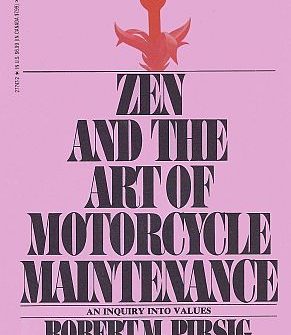
A baseball bat and a ball cost $1.10 together, and the bat costs $1.00 more than the ball, how much does the ball cost?
That is because only 32% of people get this simple math problem correct.
But, you are likely not one of those people (as far as odds go, but hopefully I have clever visitors and that remark doesn’t relate to you)
So What? I got tricked by a stupid math riddle, how could that possibly matter?
This stupid math riddle is actually part of the shortest IQ test that exists, the Cognitive Reflection Test and as a result a great many people have been exposed to it and many studies dig into every detail of why people would get such a simple problem wrong so frequently. The plain english answer is that we are quick to trust our intuition, but most of us do not have intuition that should be trusted. If you took a moment to write it down, if you double checked and thought about what the total of 1.10 and .10 is, you would get it, but you allowed the first thought that came to mind to be trusted and decided to move forward with it. Your brain actually lied to you. It does that…that is a thing.
What I want this to illustrate is that although this is just one strange internet article typed out by some random hack but you make these decisions about evaluating truth and making decisions using “intuition” that is likely failing you more than you could ever know but the impact of that hasty thought is not always going to be called to your attention as this puzzle answer was.
That was the whole point of these few sentences and we can just stop here but I will continue for anyone who sticks around.
Most of our daily decisions are not time sensitive to the milliseconds it would have took you to not be fooled by this question, so why do we treat them as if they must be decided or acted upon with so little thought?
My fuzzy correlation with polluting your world with disinformation and our inappropriate trust in intuition
Here is another statistic for you
59 percent of links shared on social media have never actually been clicked
Let us unpack that a bit, so this is not shrugged off. First the article focused on the sharing of news articles and social media is the primary delivery method for news content

If nearly 6 out of 10 articles shared on Twitter or Facebook were not clicked, then they were not read, so people like you and me chose to spread a message and content across the world to our friends, family members, coworkers, patrons, readers, followers etc… based on nothing more than a headline and possibly a picture. That’s it, you didn’t read it, you fact check it, you didn’t even check to see if the article had any text in it. That’s right, one experiment by The Science Post consisted of publishing an article titled ‘Study: 70 percent of Facebook users only read the headline of science stories before commenting.’ The trick here? There was no legible text in the article, yet it was shared 46,000 times. In 2014, NPR also played this “prank” on it’s readers when publishing an article “Why America Doesn’t Read Anymore” which also had no story but rather had instructions getting readers to play along and share, while the comments that piled up in the comment section were clearly from non-readers. Sadly, that was my plan for this article which has been drafted for over six months but I just discovered that 2014 gag this moment while looking for the source of the pull quote down below and now have lost some steam on the concept 🙁
“
In a statement, Arnaud Legout, who co-authored the study, said: ‘People are more willing to share an article than read it.
‘This is typical of modern information consumption.
‘People form an opinion based on a summary, or a summary of summaries, without making the effort to go deeper.’ Arnaud Legout
The Moral
The unrequested moral here is, if you cant trust a snap judgement you make over a math problem a 2nd grader can solve, how could you possibly glean anything important from a headline specifically made to get you to share it or agree with it — when you haven’t had opportunity or motivation to read it. How many of these things pile up, how many dangerous science concepts have you spread to people, how many political conversations did you show your support for by just passing it along, was there ever a point where you legitimately slowed down and analyzed concerns important to you? Ever? Or has it always been “your gut?
There is no answer, it is just an observable behavior you can see in yourself and in the world around you and it is worth stopping it when you can. Nothing wrong with being silent, or waiting to participate until you put the time in, or in your personal life not making that important decision until you can analyze rather than intuit. Brain not gut.
Want to Complete that “World’s Shortest IQ Test?”
If it takes five machines five minutes to make five widgets, how long would it take 100 machines to make 100 widgets?
In a lake, there is a patch of lily pads. Every day, the patch doubles in size. If it takes 48 days for the patch to cover the entire lake, how long would it take for the patch to cover half of the lake?
How did you do?
If you got one right, share the article with the little tool below, if you got two right, like and share the article, if you got all three right, like and share after writing “100” as your post comment.
Further Reading
- https://www.psychologytoday.com/us/blog/the-new-brain/201204/religion-and-reason
- https://hal.inria.fr/hal-01281190
- https://jamesclear.com/first-principles




